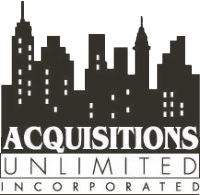Most business owners, at one point or another, will contemplate selling their business. Several business owners we work with have a plan in place for the sale of their company when they create and incorporate. However, most business owners come to the decision during a period of “business stress.” Examples would be problem employees, crazy customers or vendors, health problems or finding out the kids don’t want the business after all and you have already bought your retirement home in Ecuador.
The decision to sell is often a bittersweet one. On the one hand you built the company to be successful and it is like a child to you, making it difficult to let go of the reins and imagining someone else sitting in your office. On the other hand there is that large check handed to you at closing. And if you finance part of the transaction, there is that monthly check with interest.
However it is a decision that should not be taken lightly. The marketing and sale of a business can not only be time consuming but it can also be frustrating. But if you do decide to sell, there are certain things that you should keep in mind. We will cover those things in this and subsequent articles.
- You know your business is great and the buyer should jump on the deal. Buyers make offers on businesses because of the financial information. They will want to see tax returns and current profit and loss statements. Sit down and analyze the financial information. What are the owner benefits? Do you take a salary from the business? Any additional perks that you enjoy from owning your business? You may want to consult with your advisor/business broker in order to determine all benefits.
- Buyers will want to know how much inventory you have on hand and how much they would need to continue operating the business. The inventory, at cost, can either be included in the sale price or purchased separately with a check from the buyer at Closing.
- Create an equipment list that includes a current market value of the items on the list. The current market value is what that piece of equipment would cost to replace in its present age and condition. The equipment is typically included in the sale price.
This should give you something to chew on.
In future articles, we will continue to explore other aspects of the business sale process.
Read Part 2
Jan Fowler and Greg Colvin cowrote this article. Jan Fowler is President of Acquisitions Unlimited, Inc, a merger and acquisitions, business intermediary company in Tampa Florida. Greg Colvin is an associate of Acquisitions Unlimited since 2001. Acquisitions has consulted with and provided valuation, marketing and sales assistance to more than 500 families and business owners.
